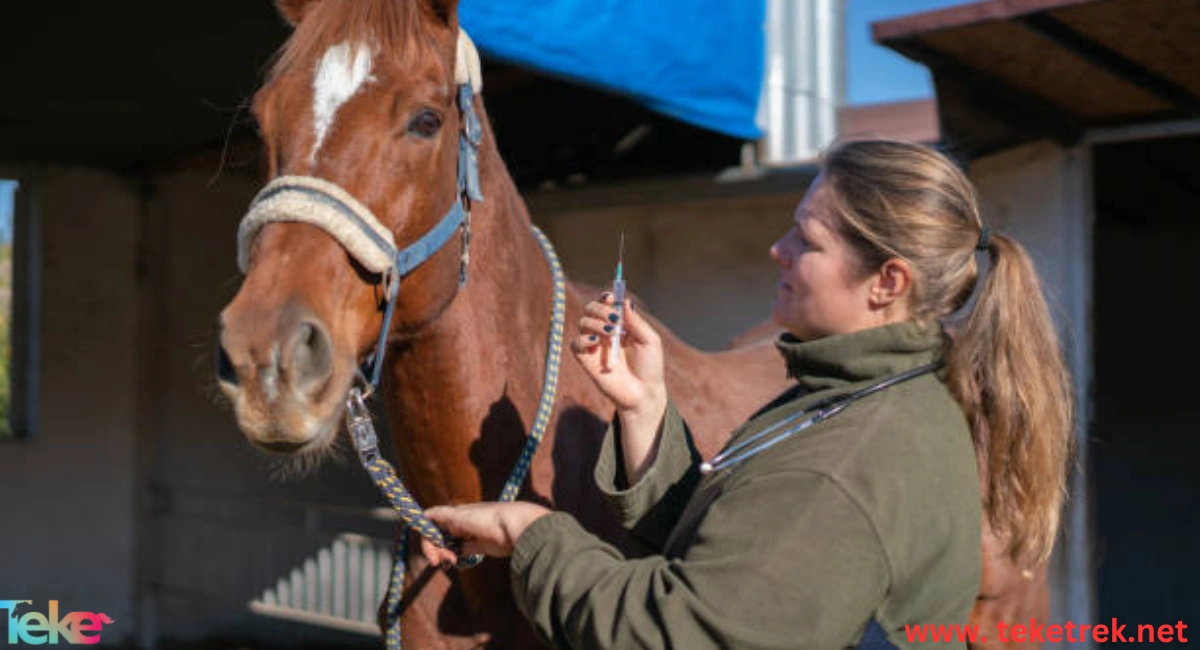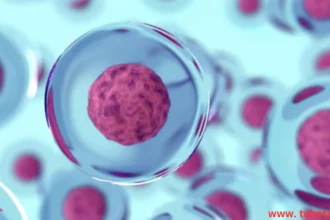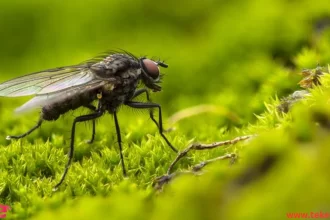Horses are beloved animals for many people because of their beauty, lightness, and strength. They are also loyal and faithful and are used in many ways to serve humans, including for recreation, as well as for transporting goods and traveling. For this reason, it is necessary to care for them and take care of them by following up on horses, developing comprehensive vaccination programs, taking care of good nutrition, and regular veterinary care in order to protect them from diseases that harm them and affect their performance and health in general.
Here are the details in this article from teketrek.
The common horse diseases
Horses are exposed to many common diseases such as respiratory, skin, and intestinal diseases, and they must be taken into account and prevented as much as possible, including:
Horse strangulation
It is one of the common diseases in horses, and most of these symptoms are apparent because they resemble the symptoms of influenza that affects some other animals such as birds and dogs, and some of them are the influenza that affects humans. The symptoms of this disease are represented by an increase in the horse’s body temperature above the normal rate in addition to a change in the color of the mucus, and its acquisition of a green color, and the jaws of the mouth swell from the inside of the horse due to swelling of the lymph nodes, and it loses its appetite, and it occurs due to a Gram-positive bacteria infection, and since this infection is transmitted through breathing, it is best to follow up on the vaccination of all horses in the same complex with the vaccine approved by the Health Authority and the Veterinary Unit.
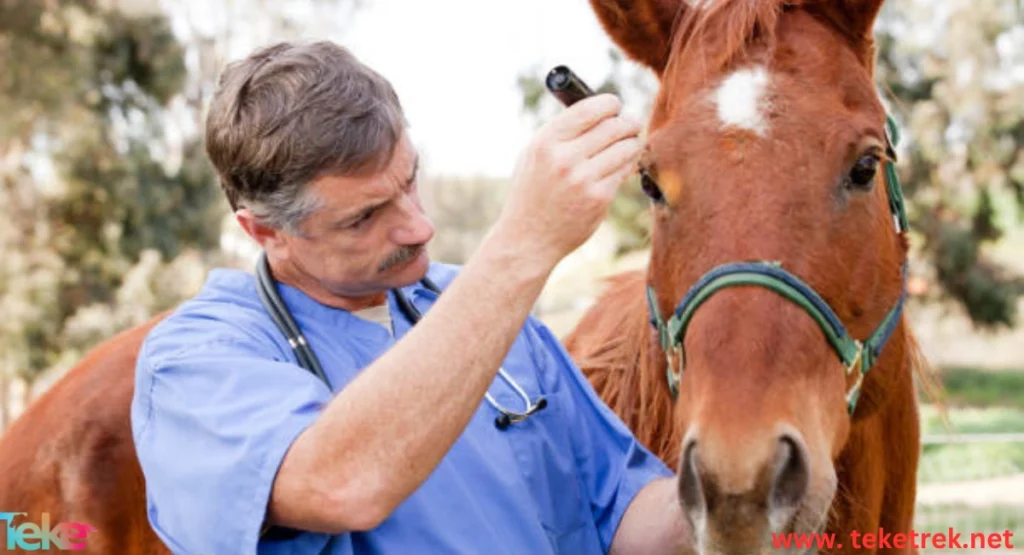
Anorexia in horses
It is a disease that affects horses and affects their health and well-being. Given the importance of horses in some people’s lives, it was necessary to identify the cause of this disease and treat it in order to restore the horse’s energy, ability to work, and regularity in good performance. Therefore, it was necessary to know the causes of this disease. Anorexia in horses is due to the possibility of the stomach or intestines being affected by some health problems such as gases or cramps that may be the reason for the horse losing its appetite for food.
If the foods are not suitable for the horse or horses or are deficient in their essential nutritional elements, this may lead to intestinal contamination of the horse and cause it to lose the ability to eat a lot. Also, changing the place where the horse is raised to another place causes it to lose its appetite, especially since horses are characterized by loyalty to their breeders, which results in the horse losing its appetite and aversion to food. Influenza is a reason for the horse to lose its appetite, as well as intestinal infections, dental problems, jaw swelling, and respiratory diseases, all of which may lead to the horse losing its appetite.
Horse cramps
It is a sudden and unexpected tension in the horse’s muscle that causes it a lot of pain and makes it lose its ability to perform well. This may happen to one of the horse’s muscles and result in painful contractions in the horse’s muscles as a result of exercising and hard work in unsuitable conditions, such as in hot weather. Cramps are dangerous when they happen to the horse for the first time because in this case the horse loses its ability to breathe well. Even if this disease is not dangerous, if it causes long attacks, it may lead to coma or death in some cases, especially if the horse is not in good health or has a heart disease. Usually, horse cramps are not a serious disease, but horses recover from it within a few weeks. At this time, rest and care are required for the horse.
https://teketrek.net/en/cat-plague-the-most-dangerous-viral-diseases-that-affect-cats/
Horse Faqoush Disease
It is a disease that affects the digestive system of horses, and its symptoms are the appearance of severe pain that is noticeable by turning towards the abdomen or the horse sweating. The cause of this disease is parasites, or a change in the water and its contamination, or due to a change in the type of feed, and the lack of water also shows this disease, and it is prevented by taking preventive doses against parasites and eliminating them before they appear, and not changing the type of feed, and maintaining the cleanliness of the water and place.
Causes of horse abortion
Abortion in horses occurs at the end of the pregnancy stage, by the exit of the fetus in its early stages, or in its final stages, and the incidence of abortion in horses ranges from 5 to 15% of the number of horses. Abortion of pregnancy in horses is due to viral diseases that result in inflammation of the nose and lungs, and infection of the horse with the virus of equine arteritis fever, and anemia, and abortion may be due to bacterial diseases.
How do you know that the horse is sick?
The horse is known to be sick with every change that occurs to the horse, and the first of these changes is in the behavior of the horse, as well as in its temperature, and the color of its skin, as well as in its eyes, urine, and dung, and the color of nasal secretions, and the appearance of repeated and exhausting coughing in the horse, and loss of appetite and inability to swallow, lethargy, and fatigue from the slightest effort.
Modern diagnostic methods
Among the modern methods that have recently been known to diagnose the condition of the horse, and finally through ultrasound, which is used to examine soft tissues such as tendons and ligaments to become more accurate and clear, and swabs can be done on the horse’s secretions to find out if they contain bacteria or viruses, and laboratory tests and analysis of the blood can be performed, which show any virus that penetrates the body even before symptoms appear.
Available treatment for each type of disease
Stem cell therapy is one of the most important modern methods that have revolutionized veterinary horse care. Stem cells are used to stimulate the healing of damaged tissues such as tendons and joints, which helps reduce recovery time and increase the chances of complete recovery. They are usually used from the horse’s blood or fatty tissue, and can also be treated with antibiotics and powerful vitamins.
https://teketrek.net/en/causes-of-horse-miscarriage-why-do-horses-miscarry/
Tips to boost horse immune Disease prevention
By following a good diet and using solid feed to feed horses, practicing natural exercises in pastures, and setting up some mobile phones as well as walking devices, and non-stressful vibration to boost the horse’s immunity. Vitamins containing herbs and natural substances can also be used to boost immunity.
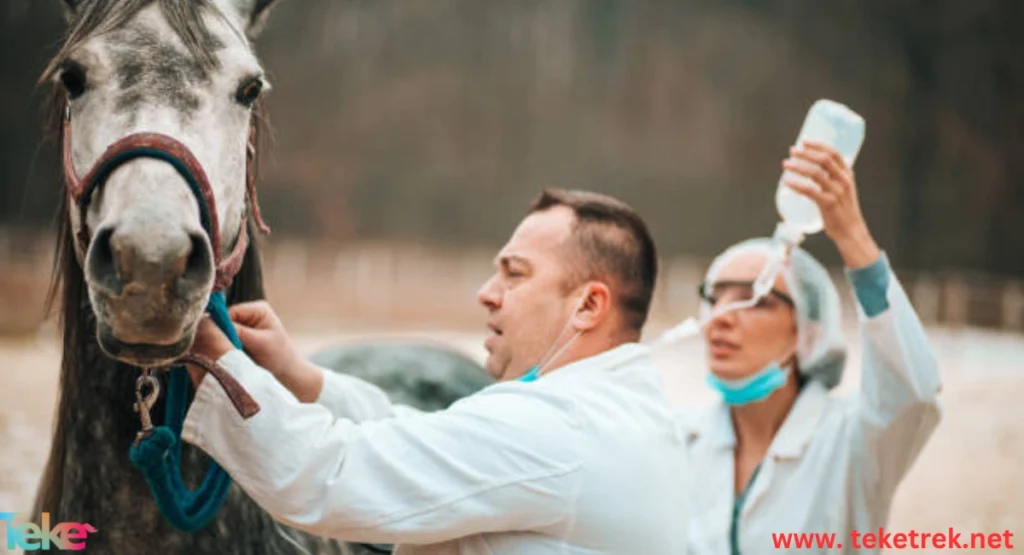
Horse disease FAQs
- What is the most common disease in horses?
Respiratory and intestinal diseases are among the most common diseases among horses due to the speed of transmission from infected horses to healthy horses.
- How to increase the speed of a horse?
The horse feeds on solid feed that contains useful nutrients and also takes vitamins that strengthen its muscles, which helps it increase speed.
- What disease kills the most horses?
Encephalitis and spinal cord inflammation, which is called sleeping sickness.
- What is the rarest disease in horses?
It is any disease that does not result in a disruption in the horse’s natural program and does not affect its performance, behavior, or health.
- What is arthritis in horses?
It is a disease that causes severe pain in the horse’s joints and reduces its ability to move, and causes the horse’s joints to swell so that they appear larger than the uninfected joints, and the temperature rises and it becomes lame.
Horses have been used in wars and as a distinctive means of transportation. Therefore, taking care of them is important in order to maintain their health and protect them from infectious diseases and others. This is done through medical follow-up, routine veterinary care, parasite control, dental care, hair and hooves care, and protection from weather factors, because horses are domesticated animals, loyal and faithful to the person who owns or raises them.

